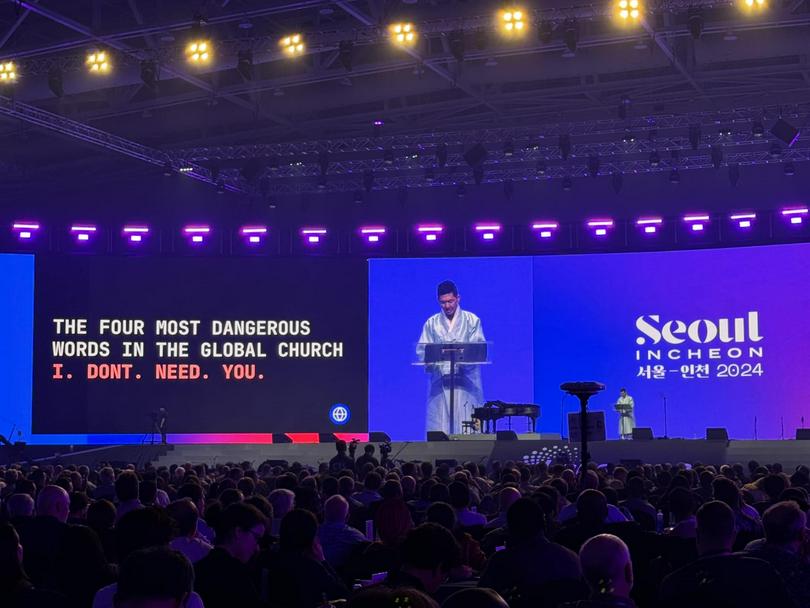On September 22, the Fourth Lausanne Congress on World Evangelization officially kicked off in Incheon, South Korea, gathering over 5,000 Christian leaders and evangelists from 202 nations, with an additional 5,000 participants joining virtually from around the world. This historic event aims to address the challenges of spreading the gospel in an ever-changing world.
Rev. Jae-Hoon Lee, a co-chair of the Fourth Lausanne Congress organizing committee and senior pastor of Onnuri Church, emphasized the significance of this congress during the opening ceremony, describing it as a "manifestation of God’s faithfulness."
He highlighted three key reasons for the Fourth Congress’s importance: it is the first mission conference in the hyper-connected era of the Fourth Industrial Revolution, the shift towards a polycentric model of global missions, and the inclusion of multiple digital generations working together for collaborative action. He called for humility, collaboration, and innovation as the global church strives to fulfill the Great Commission.
Dr. Michael Oh, Global Executive Director of Lausanne, expressed deep gratitude to the participants for their commitment to the mission ahead, emphasizing the importance of collaborative action in the coming years.
In his speech, Dr. Oh highlighted the challenges that still lie ahead, 50 years after the first Lausanne Congress convened in 1974. He pointed out the unfinished task of global evangelization, noting that despite significant progress, the number of people who have never heard the gospel continues to rise each year. He spoke of the "flawed mission" and "flawed witness" of the global church, calling for repentance and renewed resolve in light of these challenges.
Dr. Oh addressed the decline in the rate of gospel-sharing in many parts of the world, attributing this to isolation and competition among ministries. He challenged the attendees to overcome these barriers by working together, saying, "The four most dangerous words in the global church today are: ‘I don’t need you.’"
A major theme of the congress is unity within the global Christian community. Dr. Oh underscored the importance of collaboration across different sectors of society, including business, technology, and the arts. He called on the church to embrace every member of the body of Christ, not just traditional ministers and missionaries, to effectively carry out God’s mission in the world.
"There are gloriously beautiful and effective parts of the body that have been marvelously equipped and strategically sent to every sphere of society and every nation of the world," he stated.
Looking ahead, the congress will focus on collaborative action sessions, where participants will strategize and commit to tangible efforts for spreading the Gospel and enhancing the church's global witness.
The State of the Great Commission, released months ago, and the Seoul Statement, launched yesterday, are pivotal documents for the Fourth Lausanne Congress. Designed to work together, these resources inform participants about both theological and strategic concerns. The Seoul Statement focuses on biblical reflection, while the State of the Great Commission provides a strategic overview of the current status of global evangelism. Both documents aim to encourage collaborative action, aligning with the Congress's theme, "Let the church declare and display Christ together."
As the congress progresses over the week, participants are encouraged to engage with intentionality, humility, and collaboration. Dr. Oh concluded his address with a powerful vision for the future: "Let the Church declare and display Christ together. An effective church, a beautiful bride."












